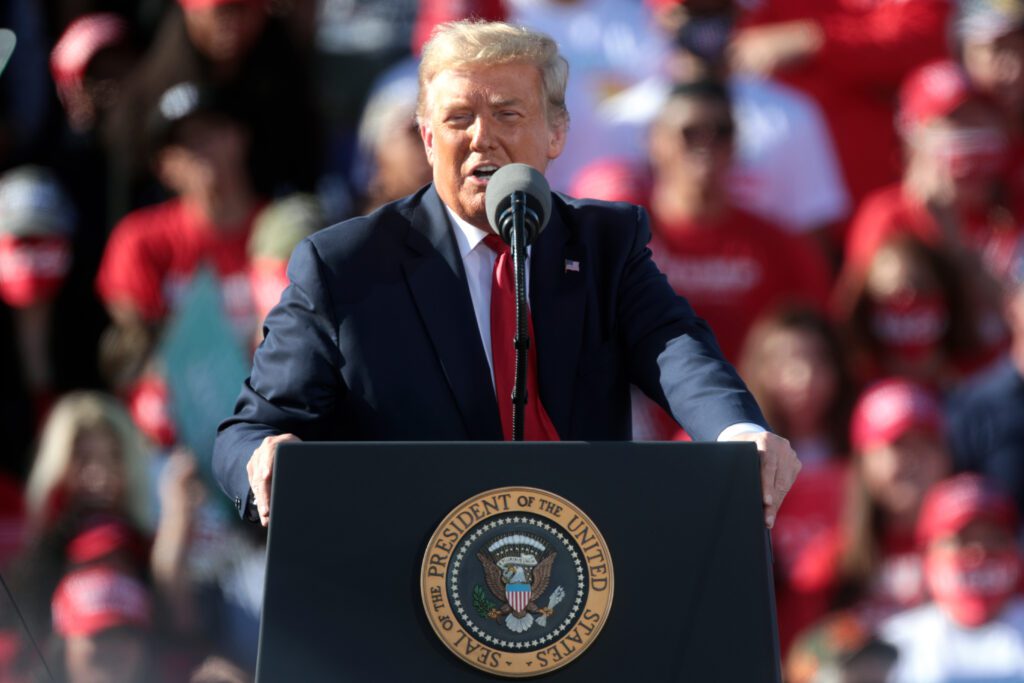“I just believe strongly that Facebook shouldn’t be the arbiter of truth of everything that people say online.”
As of January 8th, following the Capitol Hill disorders on the previous days, Twitter decided to suspend permanently the official account of Donald Trump, former U.S. President, due to the risk of further incitement to violence. The use of that medium had been controversial since his elections, and it got worse during the last months of the electoral campaign.
Let’s begin with analyzing the use of social media in political communication. There is an incredible number of messages issued by these new tools that could have never been delivered by traditional media, which are seen as gatekeepers.
Gatekeepers filter all the information available and channel what people think to how they will ultimately form their opinions.
We can clearly understand the incredible advantages for politicians in direct communication through social media: Greater reach with a higher impact on their followers. On the other hand, it is observable that disadvantages come along too, with the backlash that, for example, comes from some statements that may be misunderstood or expressed in the wrong way.
Moving on, let’s focus now on social media. Together with traditional media, they are private companies responsible for information management, every day more and more content is published on their own platforms. This delicate sector needs some clear rules to define a “fair play level” which everyone that participates must respect. Therefore, every user needs to accept the website’s “Terms of Service” when creating a social media account.
The problems with social media lay in the control mechanism system: although publishers, such as journals, need to have controls before reporting information with fact-checking, the model is flipped upside-down for social media. As the title recalls, the latter implements a business model that may be summarized by the sentence “share first, think later”. That can have a massive effect on the information spread. With no entry barriers, one can tweet something even if it is against the above-mentioned Terms of Services; meanwhile, anyone can immediately read it and even retweet that inappropriate content before it is flagged or removed by social media. Thus, the Damage has already been made.
The impact which comes out of this can be vastly different depending on who is the poster:
Sounds obvious that nobody will listen to what your crazy uncle spreads online, however, it surely does not have the same impact as the President of the United States.
Stepping back to the original topic, what happened with Donald Trump? During the last electoral campaign, Twitter flagged some of his tweets due to possible fake news or content remarked as inappropriate. As he had always done during his mandate, he used his account to lead direct attacks on his opponents with an aggressive communication style, which became a characteristic of his presidency.

After losing the election, he was repeatedly flagged for his statements about fraud in the voting system, Used as the cause of his defeat by his constituents and himself. But the decision to ban Trump from certain social networks was taken after his statements during the Capitol Hill Rally, where the former President violated the “Glorification of Violence“ clause, evidenced by Twitter with its decision to shut the account down.
“In the context of horrific events this week, we made it clear on Wednesday that additional violations of the Twitter Rules would potentially result in this very course of action. Our public interest framework exists to enable the public to hear from elected officials and world leaders directly. It is built on a principle that the people have a right to hold power to account in the open.”
After all these facts, what are the outcomes? The first effect is that such an unprecedented behavior has an emotional impact, defining some boundaries and trying to set the field for a more correct political communication. Political communication along the elections had reached low levels, e.g., in the first TV ‘debate’ between the two competitors for the White House.
Banning the President of the U.S. from social media for Glorification of Violence is a clear signal that this business model shows some limits: it does not negate the harm done, yet amplify it as people will talk about this, and those on the receiving side will not change their belief system by it.
Emotional impact aside, it does not prevent Trump from using other social media mediums or any other direct means of communication. Such a decision does not vanish people from the Internet. After accusing Twitter and other major social media companies of censorship, he stated that he wanted to create his own platform. Furthermore, many of his supporters have been moving to other “niche” platforms such as Parler, a conservative-leaning social network, with more flexible rules and terms of use. Posts on this service are known for being sometimes far-right extremist, alongside with antisemitism or conspiracy theories.
Overall, there is no clear solution to this problem, but we can give some food for thoughts. We can assume that Social Media companies need a review of the whole business model they’ve been building. Legislative action is also paramount to harmonize rules between those platforms and establishing where we draw the line on content such as hate speech. There surely is a need for some forms of control, by avoiding that fake news or cases of glorification of violence happen again. Social media is becoming every day increasingly relevant, it could have a good impact on society, but there is a need for a business model that is capable of adding value to society without resorting to violent rhetoric and misinformation.
